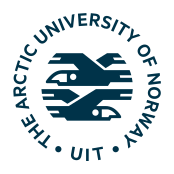📖Program Curriculum
Project details
People with spinal cord injury (SCI) undergoing rehabilitation present with unique challenges, including motor and vascular dysfunction, pronounced reduced physical capacity, fatigue and pain. This impacts on therapy participation, long-term health and quality of life. Remote ischaemic conditioning (RIC) is a non-invasive technique involving repeated arterial occlusion of the limb, resulting in cycles of local blood flow restriction and reperfusion. Recent evidence suggests that this method is safe to use in populations with a range of clinical conditions (e.g., multiple sclerosis, type 2 diabetes and stroke), and regular engagement may improve health and physical capacity outcomes. However, the use and usefulness of RIC in SCI remains unexplored.
Suggested mechanisms underpinning the effects of RIC include vascular shear stress as well as neuronal, inflammatory and trophic pathways. As such, the unique nature of SCI, including autonomic nervous dysfunction, high baseline levels of inflammation and physical immobility, requires specifically targeted studies prior to the clinical implementation of RIC in this population. The proposed project will explore the acceptability of RIC and its acute physiological effects in persons with SCI. It will further assess the long-term impacts of RIC in people undergoing SCI rehabilitation. The project is conducted in close collaboration with our clinical partners at the Princess Royal Spinal Cord Injuries Centre (PRSCIC) in Sheffield, with the majority of data being collected at their site. The successful applicant is hence going to spend a significant amount of time during their studies in a clinical environment at PRSCIC.
Loughborough University has an applied research culture. In REF 2021, 94% of the work submitted was judged to be top-rated as “world-leading” or “internationally excellent”. We are a community based on mutual support and collaboration. Through our Doctoral College there are continual opportunities for building important research skills and networks among your peers and research academics.
For informal enquiries about the project, please contact Christof Leicht.
Show less








